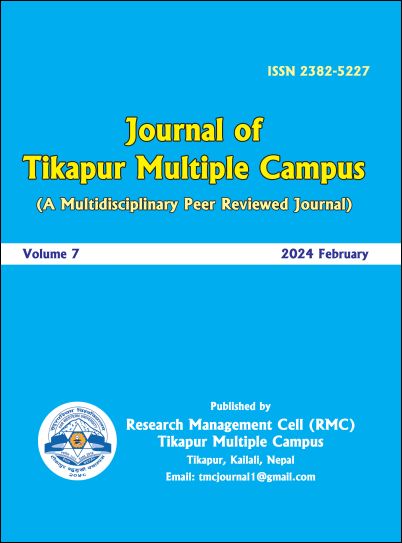Local Governance Principles in Nepal in Relation to Kautilya's Saptanga Theory
DOI:
https://doi.org/10.3126/jotmc.v7i1-2.63194Keywords:
Local governance principles, Saptanga Theory, local government, good governanceAbstract
Local governance is the decentralization and dispersed subordinate authority that delivers public services at the local level. The present governance policy is based on rich Eastern philosophical principles. Modern political theories and systems are developed or modified versions of classical theories. This paper explores the relevance of Kautilya's concept of Saptanga theory and the governance system in the local governments of Nepal. I have employed a qualitative approach as the methodology to achieve the objectives. Data and information have been collected from policy documents, research articles, and books relevant to the area of study. The analysis of the literature reveals that the Saptanga model is relevant to the principles of local governance in Nepal. The concept of an Absolute King forwarded by Kautilya having sovereign power resembles the concept and practice of an elected mayor at the local level. However, the Absolute King was assumed to have absolute power without having any controlling mechanism, but the elected local-level representatives are controlled by the constitution as the guiding principle. Despite the differences, the comparison of Local governance with the Saptanga theory of Kautilya encourages the local leaders to govern the local governance effectively and efficiently.
Downloads
Downloads
Published
How to Cite
Issue
Section
License

This work is licensed under a Creative Commons Attribution-NonCommercial 4.0 International License.
This license enables reusers to distribute, remix, adapt, and build upon the material in any medium or format, so long as attribution is given to the creator. The license allows for commercial use.




